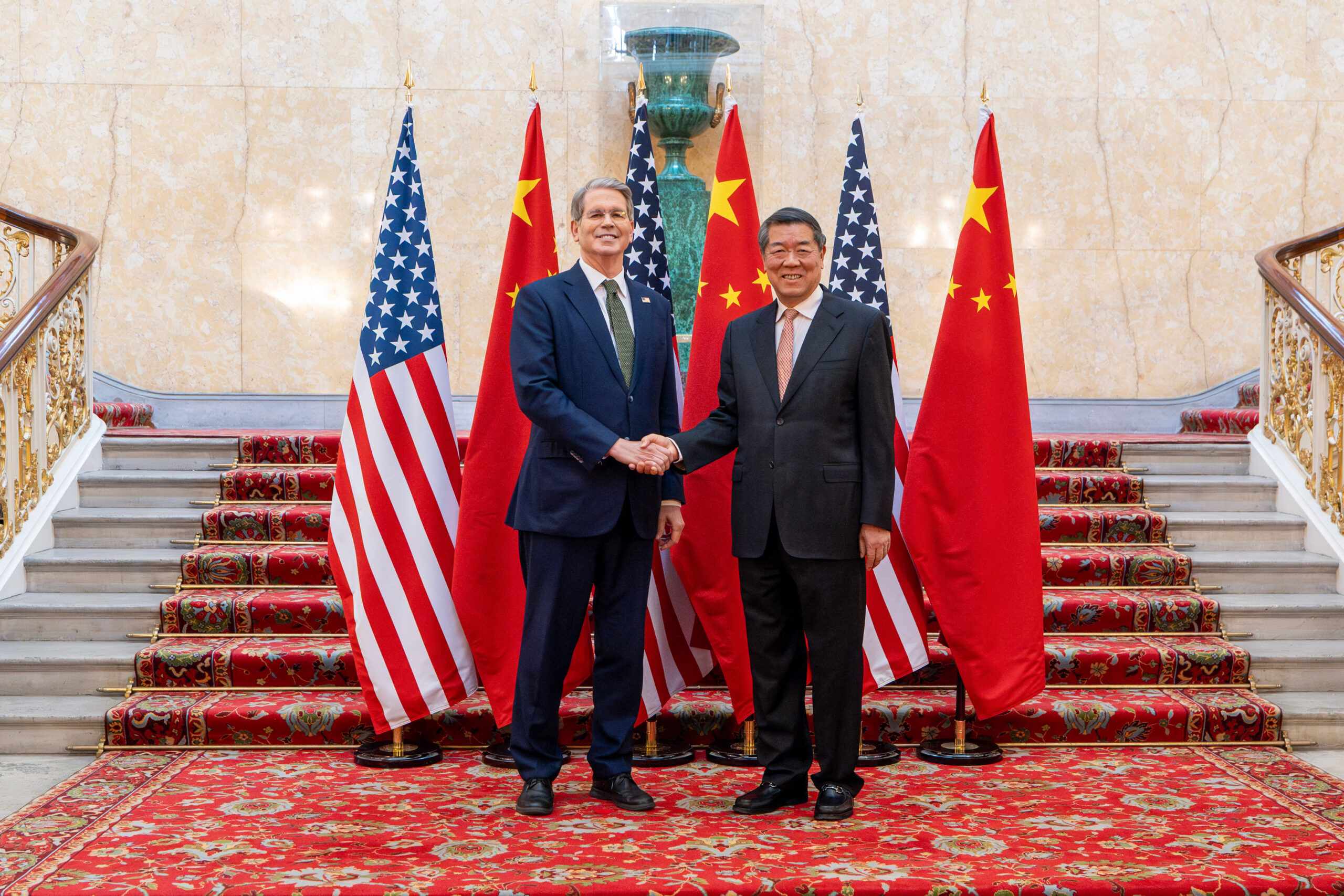
The United States and China have established a “framework” on trade following two days of negotiations in London designed to reduce tensions between the world’s largest economies.
While details of the framework announced Tuesday remain unclear, the development represents progress following Washington and Beijing’s announcement of a 90-day tariff pause after Geneva talks last month.
US Commerce Secretary Howard Lutnick reported that both sides worked to implement the “Geneva consensus” and had “pounded through” all major issues dividing the two nations.
The framework requires approval from President Donald Trump and Chinese President Xi Jinping, who discussed trade in a 90-minute phone call last week, before moving forward.
“Once the presidents approve it, we will then seek to implement it,” Lutnick told reporters outside Lancaster House.
Lutnick suggested that US measures responding to China’s slowdown in rare earth exports, a significant point of contention, would likely be relaxed once supplies of these critical minerals increase.
Chinese Vice Commerce Minister Li Chenggang described the talks as “professional, rational, in-depth and candid.”
“The two sides will bring back and report to our respective leaders the talks in the meeting as well as the framework that was reached in principle,” Li said.
“We hope that the progress we made in this London meeting is conducive to increasing trust between China and the United States.”
Asian stock markets responded positively to news of potential trade tension de-escalation, which has impacted global economic confidence.
The World Bank on Tuesday revised its global growth forecast downward from 2.7 percent to 2.3 percent, citing ongoing trade uncertainty.
Japan’s Nikkei 225 gained nearly 0.5 percent by 03:30 GMT, while Hong Kong’s Hang Seng and mainland China’s CSI 300 rose approximately 1 percent and 0.8 percent, respectively.
Trade policy expert Deborah Elms from the Hinrich Foundation in Singapore noted the complexity of reaching agreements within the 90-day timeframe.
“After two rounds of apparently intense discussions, both sides seem to have reaffirmed their interest in avoiding new escalation and have started to flesh out the path forward,” Elms told Al Jazeera.
“Despite the optimistic language from some out of the White House, these talks are not going to be easy.”












Be the first to leave a comment